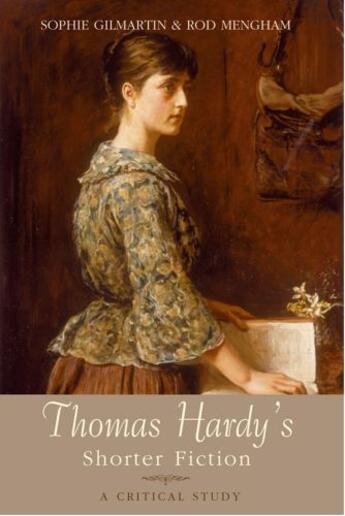Des idées de lecture pour ce début d'année !
Passionné(e) de lecture ? Inscrivez-vous
gratuitement ou connectez-vous pour rejoindre la
communauté et bénéficier de toutes les fonctionnalités du site !

This critical study of Hardy's short stories provides a thorough account of the ruling preoccupations and recurrent writing strategies of his entire corpus as well as providing detailed readings of several individual texts. It relates the formal choices imposed on Hardy as contributor to Blackwood's Magazine and other periodicals to the methods he employed to encode in fiction his troubled attitude towards the social politics of the West Country, where most of the stories are set. No previous criticism has shown how the powerful challenges to the reader mounted in Hardy's later stories reveal the complexity of his motivations during a period when he was moving progressively in the direction of exchanging fiction for poetry.
* Unique in providing a comprehensive criticism of Hardy's entire output of short stories.
* Full, detailed, close readings of a number of key stories make this useful as a potential teaching resource.
* Draws on the work of social historians to make clear the background of social and political unrest in Dorset that is partly uncovered and partly hidden in Hardy's portrayals of his fictional Wessex.
* Offers fascinating insights into Hardy's near-obsession in his mature phase with the marriage contract, and with its legal binding of erratic men and women.
Il n'y a pas encore de discussion sur ce livre
Soyez le premier à en lancer une !

Des idées de lecture pour ce début d'année !

Si certaines sont impressionnantes et effrayantes, d'autres sont drôles et rassurantes !

A gagner : la BD jeunesse adaptée du classique de Mary Shelley !

Caraïbes, 1492. "Ce sont ceux qui ont posé le pied sur ces terres qui ont amené la barbarie, la torture, la cruauté, la destruction des lieux, la mort..."